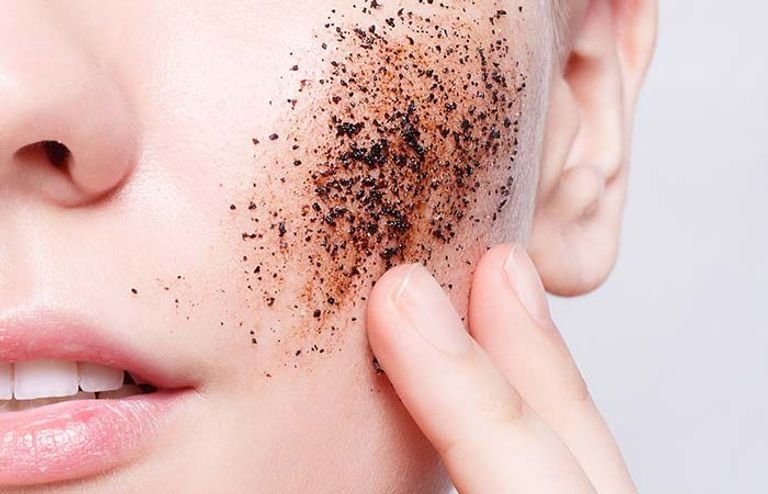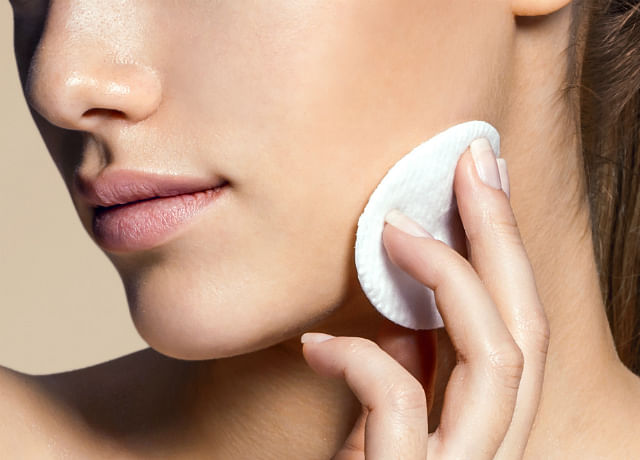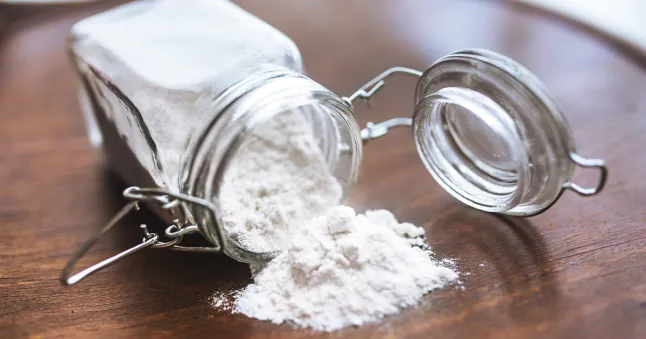
Image Credit : Yandex
Achieving radiant skin often requires more than just a basic cleansing routine. Exfoliating scrubs have become a game-changer in skincare, offering a way to reveal a fresh, glowing complexion. These products work by removing dead skin cells, unclogging pores, and promoting cell turnover, which results in smoother, brighter skin. The right exfoliating facial scrub can make a significant difference in one’s skincare regimen, addressing issues from dullness to uneven texture.
This article delves into the world of exfoliation, exploring the top 15 exfoliating scrubs for a radiant face. It covers a range of options, from physical scrubs to chemical exfoliants like salicylic acid, and even natural and organic alternatives. Readers will learn how to pick the best face exfoliator for their skin type, master proper exfoliation techniques, and understand how to combine exfoliation with other skincare steps. By the end, they’ll be equipped with the knowledge to choose the best exfoliating scrub for their unique skincare needs.
What is Exfoliation?
Exfoliation is the process of removing dead skin cells from the surface of the skin. This essential skincare step involves using a chemical, granular substance, or exfoliation tool to slough off the outermost layer of the epidermis. By doing so, exfoliation reveals fresher, healthier skin underneath and assists the skin’s natural cell turnover process.
The skin naturally sheds dead cells as part of its regeneration cycle. However, this process slows down with age. In younger, healthy skin, cell turnover occurs approximately every 28 days. As one ages, this cycle can extend to 40-60 days or even longer. This slowdown leads to an accumulation of dead skin cells on the surface, resulting in dullness, uneven skin tone, and potential breakouts due to clogged pores.
Benefits of Exfoliation
Exfoliation offers numerous benefits for the skin:
- Improved appearance: Regular exfoliation can leave the skin looking brighter and more radiant.
- Enhanced product absorption: By removing the barrier of dead skin cells, exfoliation allows skincare products to penetrate deeper into the skin, increasing their effectiveness.
- Unclogged pores: Exfoliation helps prevent clogged pores, reducing the likelihood of breakouts.
- Collagen stimulation: Long-term exfoliation can increase collagen production, promoting skin elasticity and minimizing the appearance of fine lines.
- Even skin tone: Exfoliation helps to even out skin tone and may assist in fading dark spots over time.
- Improved circulation: The process stimulates blood flow, nourishing the skin’s surface and promoting a healthy glow.
Image Credit : Yandex -

Achieve Your Best Skin Yet with These Expert-Recommended Exfoliators Smoother texture: By removing dead skin cells, exfoliation helps to smooth the skin’s texture, resulting in a more uniform appearance.
Types of Exfoliants
There are two main categories of exfoliants:
- Physical Exfoliants:
- These involve manual scrubbing or rubbing to remove dead skin cells.
- Examples include scrubs with small particles (like coffee, jojoba beads, or sugar granules), body brushes, loofahs, and microdermabrasion treatments.
- Physical exfoliants offer immediate results and are easily accessible for at-home use.
- Chemical Exfoliants:
- These use chemicals to dissolve the bonds between dead skin cells, allowing them to slough off naturally.
- They are further divided into: a) Alpha Hydroxy Acids (AHAs): Water-soluble acids derived from sugary fruits, including glycolic acid, lactic acid, and citric acid. b) Beta Hydroxy Acids (BHAs): Oil-soluble acids that penetrate deep into pores, with salicylic acid being the most common. c) Retinoids: Derived from vitamin A, these help protect skin from free radicals and promote collagen production.
- Chemical exfoliants can offer more dramatic results but may require guidance from a skincare professional.
Also Read : Honest Boca Burgers Reviews: Taste, Texture, and More
How Often to Exfoliate
The frequency of exfoliation depends on individual skin type and the chosen exfoliation method:
- Normal to oily skin: Can typically handle exfoliation 1-3 times a week with a gentle product.
- Dry or sensitive skin: Should limit exfoliation to once a week using a mild exfoliant.
- Combination skin: May benefit from a mix of chemical and physical exfoliation, targeting different areas as needed.
It’s crucial to listen to your skin and adjust the frequency accordingly. Over-exfoliation can lead to irritation, redness, and damage to the skin barrier. Always start with less frequent exfoliation and gradually increase as tolerated. Additionally, it’s important to follow up exfoliation with proper moisturization to maintain skin health and hydration.
Top Physical Exfoliating Scrubs
Image Credit : Yandex
Physical exfoliating scrubs have become a popular choice for those seeking to improve their skin’s texture and appearance. These products use small particles to slough off dead skin cells, resulting in smoother, brighter, and more radiant skin. While face scrubs can offer numerous benefits, it’s crucial to choose the right one for your skin type and use it correctly to avoid potential irritation.
Gentle Scrubs for Sensitive Skin
For those with sensitive skin, finding an effective yet gentle exfoliator can be challenging. However, several options cater specifically to this skin type:
- Skinceuticals Micro-Exfoliating Scrub: This product is highly recommended for sensitive skin due to its gentle formula. It’s free from potential irritants such as fragrance, alcohol, and parabens, making it suitable for those prone to skin sensitivity.
- Tatcha Rice Powder Exfoliator: This unique scrub uses rice powder as its main exfoliating ingredient. When wet, the rice powder foams up, providing a gentle yet effective polish to reveal softer, smoother skin underneath.
- Repechage Honey & Almond Facial Scrub: This scrub has shown long-term benefits for sensitive skin types. After consistent use, users have reported improvements in overall skin health, more even skin texture, and increased luminosity.
When using these scrubs, it’s important to start with once-a-week application and gradually increase frequency as tolerated. On exfoliation nights, it’s advisable to skip other potentially irritating products like acne formulas or retinol. Instead, use a gentle cleanser, followed by the exfoliator, and finish with a moisturizer.
Scrubs for Oily and Acne-Prone Skin
Oily and acne-prone skin types can benefit from exfoliation to help unclog pores and control excess oil. Here are some suitable options:
- Peter Thomas Roth Potent-C Power Scrub: This scrub is excellent for exfoliating and brightening the complexion. It contains vitamin C and ferulic acid, which help improve hyperpigmentation and dark spots often associated with acne-prone skin.
- Exuviance Triple Microdermabrasion Face Polish: This product combines chemical, physical, and enzymatic exfoliators to tackle dead skin cells from multiple angles. It includes 10% glycolic acid, an AHA that helps dissolve dead skin cells, revealing smoother, more even skin underneath.
When using these scrubs, it’s important to be gentle and not over-exfoliate, as this can lead to increased oil production and potential breakouts.
Hydrating Scrubs for Dry Skin
Dry skin can benefit from exfoliation to remove flaky skin and improve product absorption. However, it’s crucial to choose scrubs that also provide hydration:
- Dermalogica Daily Milkfoliant: This gentle exfoliator combines physical and chemical exfoliants with nourishing ingredients like coconut milk. It effectively removes dry skin buildup while supporting better absorption of hydrating products.
- Skinceuticals Micro-Exfoliating Scrub: While also suitable for sensitive skin, this scrub contains glycerin and aloe, which help support a healthy skin barrier during the exfoliation process.
When using these scrubs on dry skin, it’s important to follow up with a rich moisturizer to lock in hydration.
Regardless of skin type, it’s essential to approach physical exfoliation with caution. While these scrubs can offer immediate improvements in skin texture and appearance, overuse can lead to irritation or damage to the skin barrier. Always start with less frequent exfoliation and adjust based on your skin’s response. Remember, the goal is to reveal healthier, more radiant skin without compromising its natural protective functions.
Best Chemical Exfoliants
Chemical exfoliants have become increasingly popular in skincare routines due to their ability to effectively remove dead skin cells, balance oil production, and improve overall skin texture. Unlike physical scrubs, these exfoliants use specific compounds to break down the bonds between skin cells, promoting cellular turnover and revealing fresher, healthier skin underneath.
AHA Exfoliants
Alpha Hydroxy Acids (AHAs) are water-soluble acids derived from sugarcane or other plant sources. They work on the skin’s surface to exfoliate and improve overall skin texture. AHAs are particularly beneficial for those concerned with signs of aging, uneven skin tone, and dryness.
Some common AHAs include:
- Glycolic Acid: Considered the gold standard among AHAs, glycolic acid has the smallest molecule size, allowing for deeper penetration and faster results.
- Lactic Acid: Slightly larger than glycolic acid, lactic acid provides similar benefits but at a gentler pace, making it suitable for sensitive skin types.
- Mandelic Acid: With the largest molecule size among AHAs, mandelic acid offers gentle exfoliation, making it an excellent choice for those with sensitive skin.
AHA exfoliants can help reduce the appearance of fine lines, wrinkles, and dark spots while improving skin hydration and firmness. Products containing AHAs in concentrations between 5% and 10% with a pH between 3 and 4 are ideal for optimal, non-irritating exfoliation.
BHA Exfoliants
Beta Hydroxy Acids (BHAs) are oil-soluble acids that penetrate deeper into the pores. The most common BHA used in skincare is salicylic acid. BHAs are particularly effective for those with oily, acne-prone skin or clogged pores.
Benefits of BHA exfoliants include:
- Unclogging pores and reducing blackheads
- Controlling excess oil production
- Calming inflammation associated with acne
BHA exfoliants can be a game-changer for those struggling with persistent acne or oily skin. However, it’s essential to start with lower concentrations and gradually increase usage to avoid irritation.
Enzyme Exfoliants
Enzyme exfoliants offer a gentler alternative to AHAs and BHAs. These natural exfoliants use fruit enzymes to dissolve dead skin cells and reveal smoother, brighter skin. Common enzymes used in skincare include papain (from papaya) and bromelain (from pineapple).
Enzyme exfoliants are particularly suitable for those with sensitive skin or those looking for a milder exfoliation option. They work effectively to:
- Remove dead skin cells
- Improve skin texture
- Enhance overall skin radiance
Many users report smoother, softer skin after using enzyme exfoliants regularly. These products often combine the exfoliating power of enzymes with nourishing ingredients like sweet almond oil or vitamin C-rich extracts to provide additional skincare benefits.
When incorporating chemical exfoliants into a skincare routine, it’s crucial to start slowly and listen to your skin. Overuse can lead to irritation or damage to the skin barrier. It’s also essential to use a broad-spectrum SPF 30+ sunscreen daily, as chemical exfoliants can increase skin sensitivity to UV rays.
By choosing the right chemical exfoliant for your skin type and concerns, you can effectively address issues such as dullness, uneven texture, fine lines, and acne, revealing a smoother, brighter, and more radiant complexion.
Natural and Organic Exfoliating Options
Natural and organic exfoliating options have gained popularity among skincare enthusiasts seeking gentler alternatives to chemical exfoliants. These options often utilize ingredients found in nature, providing effective exfoliation while nourishing the skin with beneficial nutrients.
Plant-Based Exfoliants
Plant-based exfoliants offer a range of benefits for various skin types. One notable example is the Athar’a Pure Indian Glow Face Scrub, which draws inspiration from traditional Indian skincare practices. This scrub combines a blend of natural ingredients, including sandalwood, turmeric, neem, rice powder, oat flour, kaolin clay, orange peel powder, flaxseed, and guava fruit powder. Each component contributes to the scrub’s effectiveness:
- Turmeric and Sandalwood: These ingredients provide antibacterial and antifungal properties while nourishing the skin.
- Organic Oat Flour: Soothes irritated skin, making it suitable for sensitive skin types.
- Organic Brown Rice Powder: Helps even skin tone and fade dark spots.
- Neem: Excellent for treating and healing problematic skin conditions such as acne, eczema, psoriasis, and dermatitis.
- Orange Peel Powder: Delivers a high level of Vitamin C to brighten the complexion, combat free radicals, and renew skin cells.
Another plant-based option is the Green Banana Bio-Actives exfoliator. This product combines botanical ingredients with gentle physical exfoliants:
- Green Banana Bio-Actives: Fight free radicals and reduce the appearance of fine lines and wrinkles.
- AHA Fruit Acids: Gently dissolve the bonds of dead skin cells.
- Jojoba Beads: Provide physical exfoliation to remove dead skin cells.
- Lemon Water: Acts as a source of Vitamin C to help brighten the skin.
These plant-based exfoliants offer a combination of chemical and physical exfoliation, catering to different skin needs and preferences.
DIY Scrub Recipes
For those who prefer a hands-on approach, creating DIY scrubs at home can be an enjoyable and cost-effective option. Here are some simple recipes using natural ingredients:
- Oatmeal and Honey Scrub:
- Combine oatmeal with raw honey
- Oatmeal has anti-inflammatory properties, while honey provides antibacterial benefits
- Apple and Honey Scrub:
- Mix grated apple with honey
- Apples contain natural fruit acids and enzymes, making this scrub suitable for oily or acne-prone skin
- Banana-Based Scrub:
- Mash a ripe banana and mix with a gentle exfoliant like sugar
- Bananas contain nutrients like potassium, vitamin C, and silica, which can boost collagen production
- Coffee Scrub:
- Combine ground coffee with a carrier oil
- Coffee has natural exfoliating and anti-inflammatory properties
- Strawberry Scrub:
- Mash strawberries and mix with a gentle exfoliant
- Strawberries are rich in vitamin C and have anti-inflammatory properties, making this scrub suitable for acne-prone skin
- Brown Sugar and Avocado Oil Scrub:
- Mix brown sugar with avocado oil and a few drops of lemongrass essential oil
- This combination exfoliates and hydrates the skin while potentially treating skin infections
When creating and using DIY scrubs, it’s important to remember that natural ingredients can still cause irritation for some skin types. It’s advisable to perform a patch test before applying any new scrub to the face and to use gentle, circular motions during application.
By incorporating these natural and organic exfoliating options into a skincare routine, individuals can enjoy the benefits of exfoliation while using ingredients that are gentle on the skin and environmentally friendly. Whether opting for plant-based products or creating DIY scrubs at home, these natural alternatives offer effective ways to achieve smoother, brighter, and more radiant skin.
How to Choose the Right Exfoliator for Your Skin Type
Selecting the appropriate exfoliator for one’s skin type is crucial for achieving optimal results without causing irritation. The first step in this process is to determine one’s skin type accurately. A simple test can help individuals identify their skin type and guide them towards the most suitable exfoliating products.
To perform the skin type test, one should:
- Wash their face with a gentle cleanser to remove all makeup, oil, and dirt.
- Pat their face dry with a soft towel and refrain from applying any products.
- Wait for one hour without touching their face.
- Examine how their face looks and feels after this period.
Based on the results, individuals can categorize their skin as:
- Combination Skin: Light breakouts, with both dry and oily areas
- Normal Skin: Well-balanced, neither too dry nor too oily
- Oily Skin: Shiny, oily, and more prone to breakouts
- Sensitive Skin: Red, dry patches, with itching and irritation
- Dry Skin: Red, flaky, and tight feeling
Once the skin type has been determined, individuals can select exfoliants that cater to their specific needs.
Skin Type Quiz
For those seeking a more comprehensive analysis of their skin type, the Baumann Skin Type quiz offers a detailed assessment. This 3-minute quiz, developed by dermatologists, helps diagnose one’s skin type accurately and prescribes a custom skincare routine. By taking this quiz, individuals can gain valuable insights into their skin’s needs and shop for products tailored to their Baumann Skin Type.
Ingredients to Look For
Different skin types benefit from specific exfoliating ingredients:
- Combination Skin:
- Look for products that balance skin and regulate sebum production
- Recommended ingredients: Niacinamide, Antioxidants, AHAs, and BHAs
- Normal Skin:
- Seek products that maintain moisture and hydration without clogging pores
- Recommended ingredients: AHAs, BHAs, and Hyaluronic Acid
- Oily Skin:
- Choose products that help regulate sebum production and fight breakouts
- Recommended ingredients: Niacinamide, Retinol, AHAs, and BHAs
- Sensitive Skin:
- Opt for moisturizing products formulated specifically for sensitive skin
- Recommended ingredients: Ceramides, Aloe vera, and Squalene
- Dry Skin:
- Select products that hydrate and moisturize
- Recommended ingredients: Ceramides, Glycerin, and Hyaluronic Acid
When choosing chemical exfoliants, it’s important to understand the different types:
- Alpha Hydroxy Acids (AHAs): These water-soluble acids work on the skin’s surface to improve texture. Examples include glycolic, lactic, citric, and malic acid.
- Beta Hydroxy Acids (BHAs): Oil-soluble acids that penetrate pores, unclog them, and remove acne-causing sebum. Salicylic acid is a common BHA.
- Poly Hydroxy Acids (PHAs): Similar to AHAs but with larger molecules, making them gentler and less penetrative. They offer additional hydrating and antioxidant benefits.
For those new to exfoliation, it’s advisable to start slowly, applying the product once a week and gradually increasing frequency if no irritation occurs. If results aren’t noticeable after two months, switching to a different chemical exfoliant may be beneficial.
By considering their skin type and selecting appropriate ingredients, individuals can choose an exfoliator that effectively addresses their skincare needs while minimizing the risk of irritation or adverse reactions.
Proper Exfoliation Techniques
Exfoliation plays a crucial role in maintaining healthy, radiant skin by removing dead cells from the outer layer. However, it’s essential to approach this skincare step with caution, as improper techniques can lead to skin damage, irritation, or breakouts. To achieve optimal results, individuals should consider their skin type and follow expert-recommended guidelines.
Do’s and Don’ts
When it comes to exfoliation, there are several important do’s and don’ts to keep in mind:
Do:
- Choose the right exfoliator for your skin type
- Be gentle when applying the product
- Exfoliate in the morning
- Moisturize immediately after exfoliating
- Use sunscreen to protect newly exposed skin
Don’t:
- Over-exfoliate or use harsh products
- Exfoliate every day (unless using a specially formulated daily product)
- Scrub too hard or use jagged granules
- Exfoliate immediately after a facial
- Ignore signs of irritation or redness
Step-by-Step Guide
To safely and effectively exfoliate your skin, follow these steps:
- Determine your skin type: This helps in selecting the most suitable exfoliation method and products.
- Choose the right exfoliator:
- For oily skin: Use a purifying scrub with ingredients like salicylic acid
- For dry skin: Opt for a nourishing scrub with moisturizing components
- For combination skin: Select a balanced formula that addresses multiple concerns
- For sensitive skin: Use a gentle chemical exfoliator or a soft washcloth
- Prepare your skin: Cleanse your face thoroughly with lukewarm water to remove any makeup, dirt, or oil.
- Apply the exfoliator:
- For physical scrubs: Use small, circular motions for about 30 seconds
- For chemical exfoliators: Follow the product instructions carefully
- Rinse thoroughly: Use lukewarm water to remove all traces of the exfoliator.
- Pat dry: Gently pat your skin dry with a clean, soft towel.
- Apply moisturizer: This step is crucial to hydrate and protect your newly exfoliated skin.
- Use sunscreen: Apply a broad-spectrum SPF to shield your skin from UV damage.
Remember to exfoliate only once or twice a week, unless using a gentle, daily exfoliating cleanser. It’s best to incorporate this step into your morning routine, as skin renewal occurs overnight. This allows your other skincare products to penetrate more effectively throughout the day.
For those new to exfoliation, it’s advisable to start slowly and gradually increase frequency if no irritation occurs. If you notice any adverse reactions, such as persistent redness or irritation, discontinue use and consult a dermatologist.
By following these proper exfoliation techniques, individuals can enjoy the benefits of smoother, clearer, and more radiant skin without risking damage or irritation. Remember that exfoliation is just one part of a comprehensive skincare routine, and it should complement, not replace, other essential steps like cleansing, toning, and moisturizing.
Combining Exfoliation with Other Skincare Steps
Exfoliation plays a crucial role in maintaining healthy, radiant skin by removing dead cells from the outer layer. When combined effectively with other skincare steps, it can enhance the overall effectiveness of one’s skincare routine. To achieve optimal results, individuals should consider their skin type and follow expert-recommended guidelines.
Pre and Post-Exfoliation Care
Before exfoliating, it’s essential to prepare the skin properly. Cleansing the face thoroughly with lukewarm water helps remove any makeup, dirt, or oil, creating a clean canvas for exfoliation. This step ensures that the exfoliating product can work effectively on the skin’s surface.
After exfoliation, proper care is crucial to maintain the skin’s health and maximize the benefits of the treatment. Here are some key steps to follow:
- Rinse thoroughly: Use lukewarm water to remove all traces of the exfoliator.
- Pat dry: Gently pat the skin dry with a clean, soft towel.
- Apply moisturizer: This step is crucial to hydrate and protect newly exfoliated skin.
- Use sunscreen: Apply a broad-spectrum SPF to shield the skin from UV damage, as exfoliation can increase sun sensitivity.
It’s important to note that some skincare products may affect the exfoliation process. Products containing retinol, benzoyl peroxide, or prescription retinoids can make the skin more sensitive. In such cases, individuals should be cautious and may need to adjust their exfoliation routine accordingly.
Building an Exfoliation Routine
Creating an effective exfoliation routine requires careful consideration of one’s skin type and the frequency of exfoliation. Here are some guidelines to help build a suitable routine:
- Determine skin type: This helps in selecting the most appropriate exfoliation method and products.
- Choose the right exfoliator:
- For oily skin: Use a purifying scrub with ingredients like salicylic acid
- For dry skin: Opt for a nourishing scrub with moisturizing components
- For combination skin: Select a balanced formula that addresses multiple concerns
- For sensitive skin: Use a gentle chemical exfoliator or a soft washcloth
- Establish frequency: Start with exfoliating once or twice a week, gradually increasing if no irritation occurs. People with oily skin may tolerate more frequent exfoliation, while those with sensitive skin should be more cautious.
- Timing: Exfoliate in the morning to take advantage of the skin’s overnight renewal process. This allows other skincare products to penetrate more effectively throughout the day.
- Combine with masks: Using a mask 2-3 times a week can complement the exfoliation process. Different types of masks offer various benefits:
- Cream and gel masks: Help hydrate the skin
- Clay-based masks: Aid in exfoliation and remove excess oils
- Sheet masks: Apply skin-beneficial ingredients to brighten, hydrate, and reduce the appearance of redness
- Incorporate acid treatments: Facial acid treatments can encourage cell turnover. Beginners may want to start with glycolic acid, while those with acne-prone skin might benefit from salicylic acid. Hyaluronic acid can provide additional moisturizing benefits.
When introducing new products or increasing exfoliation frequency, it’s crucial to monitor the skin’s response. Signs of irritation, redness, or sensitivity indicate the need to reduce frequency or switch to gentler products. By carefully combining exfoliation with other skincare steps and adjusting the routine as needed, individuals can achieve smoother, brighter, and more radiant skin while maintaining its health and balance.
Image Credit : Yandex

Conclusion
Exfoliating scrubs have a significant influence on achieving radiant and healthy skin. This article has explored various types of exfoliants, from physical scrubs to chemical exfoliants, and even natural and organic options, providing readers with a comprehensive guide to choose the best exfoliator for their skin type. By understanding proper exfoliation techniques and how to combine this step with other skincare practices, individuals can enhance their skincare routine to reveal smoother, brighter, and more radiant skin.
To wrap up, the key to successful exfoliation lies in selecting the right product for your skin type and using it correctly. Remember to start slowly, listen to your skin, and adjust your routine as needed. With the right approach, exfoliation can be a game-changer in your skincare regimen, helping you to achieve that coveted healthy glow while maintaining your skin’s natural balance and health.
FAQs
What are some highly recommended face scrubs for exfoliation?
Some of the top face exfoliators for 2024 recommended by New York Magazine include Paula’s Choice 2% Skin Perfecting BHA Liquid Exfoliant, Versed Weekend Glow Daily Brightening Solution, Eadem Cashmere Peel, SkinCeuticals Glycolic 10 Renew Overnight, CeraVe Skin Renewing Nightly Exfoliating Treatment, Revision Skincare Pumpkin Enzyme Mask, and The Ordinary Salicylic Acid 2% Masque.
Which facial exfoliators are best suited for aging skin?
For mature skin, the best exfoliators of 2024 include products such as Glycolic Acid Anti-Aging + Exfoliator Serum, Vitamin C Radiance Citrus Facial Peel, TCA Multi-Acid Face Peel, Kateceuticals Resurfacing Overnight Peel, Renewing Age-Defying Face Exfoliator, Glowpeel Exfoliation Skin Repair, and ELEMIS Pro-Collagen Tri-Acid Peel.
What exfoliation products do dermatologists often recommend?
Dermatologists frequently recommend several exfoliation products including Dr. Dennis Gross Skincare Alpha Beta Universal Daily Peel for the best peel, Paula’s Choice 2% BHA Liquid Exfoliant for the best toner, Neutrogena Hydro Boost Gentle Exfoliating Facial Cleanser for the best cleanser, Nécessaire The Body Exfoliator for the best body scrub, and Naturium The Smoother Glycolic Acid Exfoliating Body Wash for the best body wash.
Can you describe what a radiance facial scrub is?
A radiance facial scrub is designed to gently exfoliate the skin while unclogging pores and refining its texture. It nourishes and smooths the skin, enhancing the complexion’s radiance. Key ingredients typically include organic rosehip oil, organic macerated carrot oil, and apricot kernel powder, all derived from natural sources.







